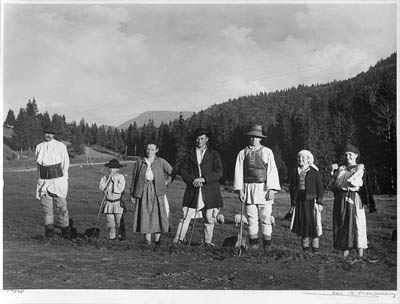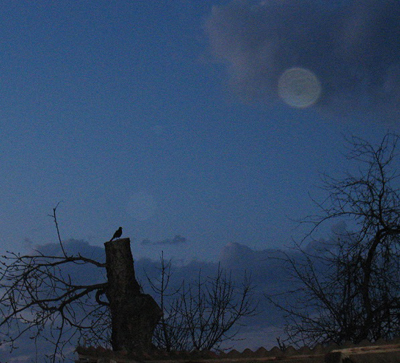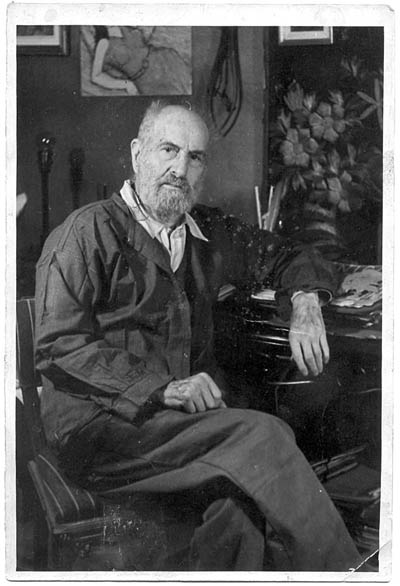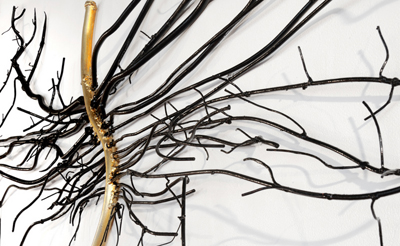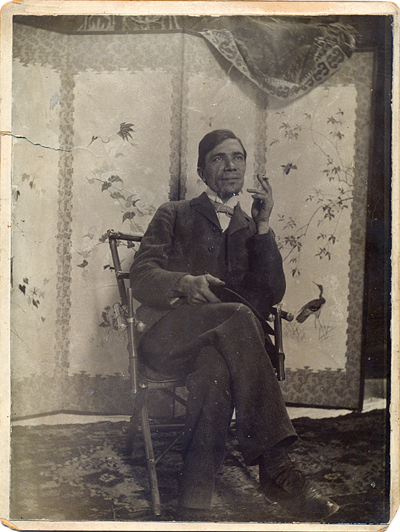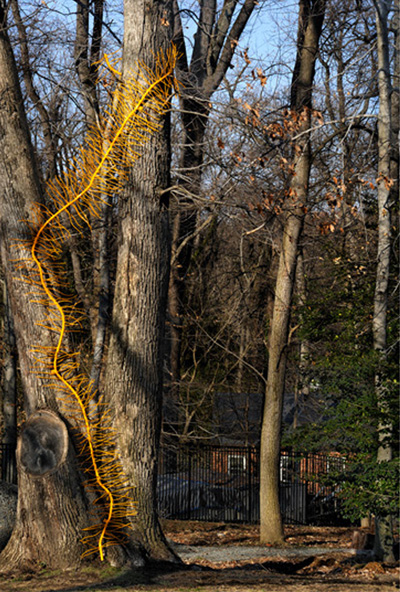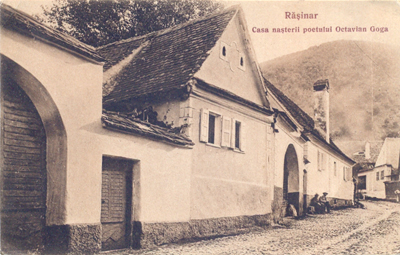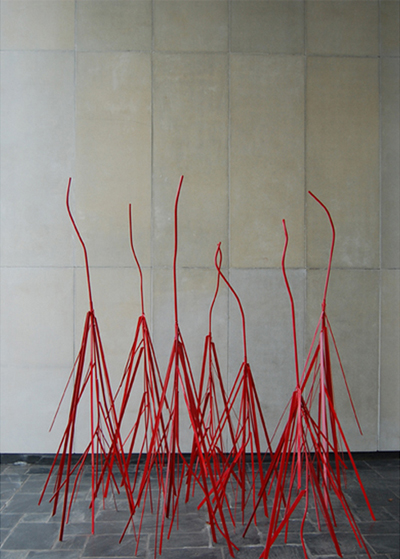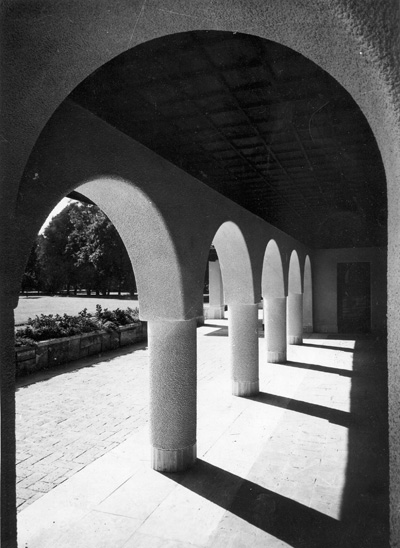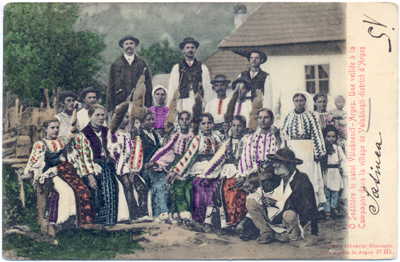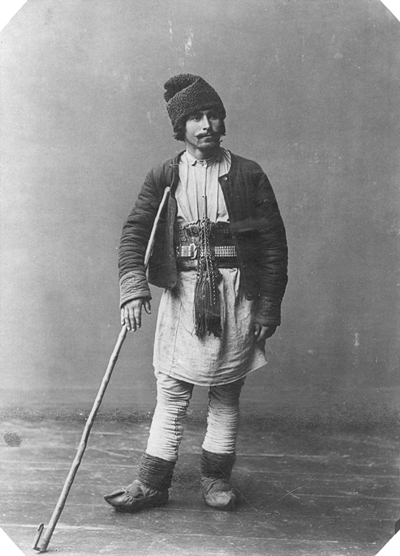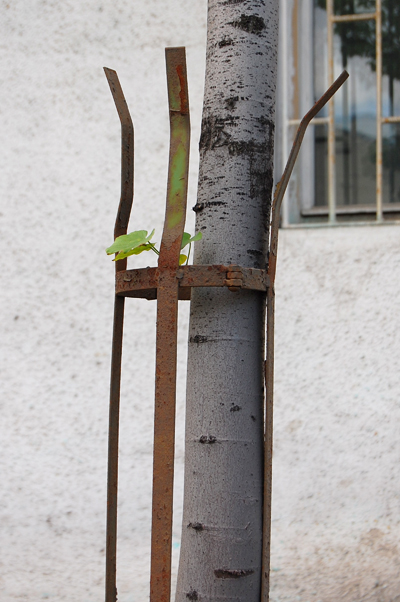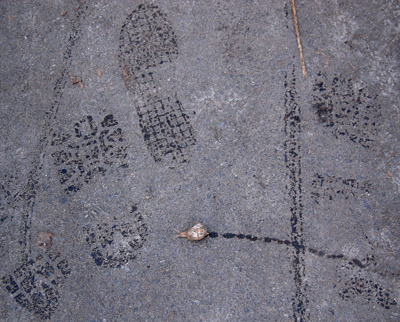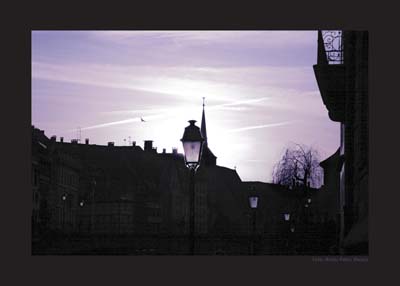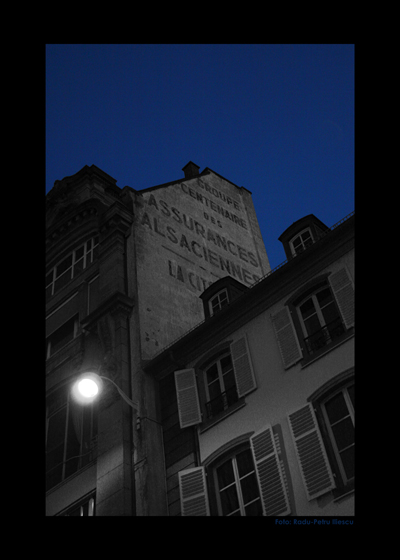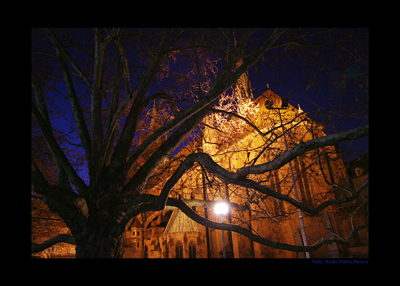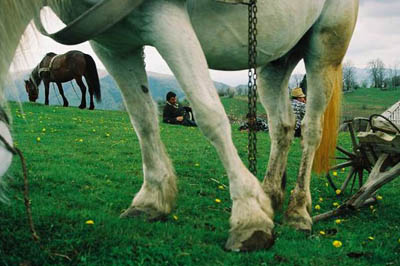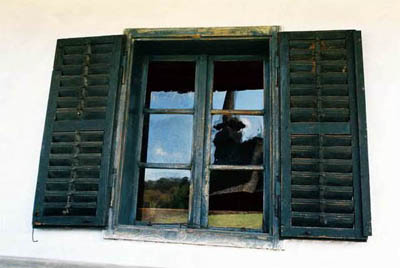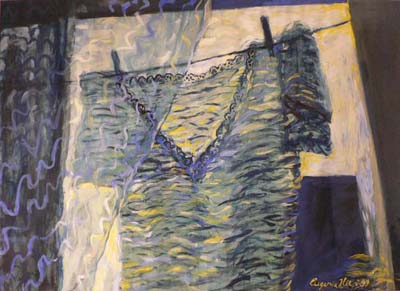The Panama Papers
miercuri 31 aug. 2016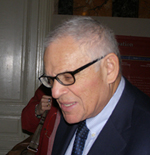
În numărul din august 2016 al lui Times Literary Supplement, Edward N. Luttwak a publicat o recenzie substanţială, cuprinzând şi propria sa analiză a fenomenului, la volumul The Panama Papers. Breaking the story of how the rich and powerful hide their money, publicat recent de Bastian Obermayer şi Frederik Obermaier la Oneworld. O puteţi citi şi aici :
Artful dodgers
How money is kept in offshore accounts
by unscrupulous tax evaders and avoiders
The Panama Papers opens with an engaging first-person account by Bastian Obermayer, a well-known investigative journalist for the Süddeutsche Zeitung, of how the whole story started: an unsolicited email from a John Doe offering “data”. As soon as Obermayer accepted the twin conditions of total anonymity and encrypted communications, he received “a big bunch of documents”.
These mostly concerned the alleged smuggling of $65 million out of Argentina on behalf of its President, Fernández de Cristina Kirchner – hardly startling news if true, given the country and the person but the documents also included what really mattered: full corporate information on the 123 name-plate-only (“shell”) companies that were used to zig-zag the money surreptitiously around the world, all of them formed by a Panamanian law firm called Mossack Fonseca.
If anyone tried to work back from company number 123 to the original money-sending company by way of the 122 companies in between, a lifetime of investigations might not do it, especially because those 122 companies could be registered anywhere in the world, not restricted to the places where the Mossack Fonseca had and still have offices, to wit: Anguilla, the Bahamas, Belize, the British Virgin Islands, Costa Rica, Cyprus, Hong Kong, Malta, the Netherlands, Panama, Samoa, the Seychelles, the United Kingdom and two US states: Nevada and Wyoming. Those companies, moreover, could be legally incorporated yet have no identifiable owners at all, because their equity might all be vested in nameless “bearer” shares. Not even the ultra-formidable billionaire Paul Singer, who had bought up heavily discounted Argentine debt, had refused “haircut” payouts and was employing lawyers and investigators everywhere to track down anything of value that he could impound (he did succeed with an Argentine naval vessel), could do anything about the $65 million sitting tantalizingly close to him in Nevada – but now all the data was revealed (too late for Singer because Argentina’s new President, Mauricio Macri, also a Mossack Fonseca client as it happens, had already decided to settle and pay him off, along with all the other hold-out claimants).
At this point Obermayer asked “John Doe” if his data was all about Argentina. That elicited more documents, related to a Russian and a German, the former being the extraordinary figure of Sergei Roldugin, a distinguished cellist with no history of business activity whatsoever, who unaccountably supposedly owns companies that transact sums of up to $850 million at a time (and yes, he happens to be Vladimir Putin’s intimate friend and the godfather of the Russian President’s daughter), and the latter being Hans-Joachim K. [sic], a Siemens manager who is recorded as receiving almost $500 million in gold at the Société Générale bank in the Bahamas in the autumn of 2013, which is passing strange because Siemens supposedly confessed to, and expunged, its mega-bribery and megaslush fund sins five years before that.
This was the beginning of a flood of 11.5 million documents containing the records of the formation and transactions of 214,000 nameplate companies, including full documentation of their real owners (passport data page scans, etc.), all of whom are relentless tax avoiders at least legal, but unethical and duplicitous for politicians, prelates and professedly responsible “stake-holder” entrepreneurs and business executives – or else fraudulent tax-evaders and/or thieving rulers. Faced with this immensity of revelations, Obermayer right away enlisted his colleague Obermaier (there are office jokes) and the Süddeutsche Zeitung as a whole enlisted the insufficiently celebrated International Consortium of Investigative Journalists, whose members belong to some 100 media organizations around the world, mostly newspapers. The printed press may be dying but if so the Panama Papers revelations are a magnificent swan-song.
At just about this point (we are still in the Prologue), readers will have realized that this is an extremely important book – this decade’s most important rather than this year’s – and not because it uncovers the thoroughly unethical behaviour of politicians in countries as varied as Iceland (the Prime Minister of which briefly resigned – though he will be contesting the next election – was only one of several ministers and ex-ministers there who had availed themselves of the services of Mossack Fonseca) and Malta, with plenty of the more predictable places in between, and nor even because it uncovers the exact machinery of corporate and personal tax avoidance and tax evasion, but rather because it offers an entirely new perspective on the greatest question of the age: why has income distribution in the more developed economies become increasingly unequal pari passu with the advance of globalization?
Globalization’s advocates – and they are very many, including all the varied categories of worthies on both sides of the Atlantic and beyond who preside over almost all respectable academic institutions and elite gatherings – habitually celebrate its transfer of income from higher-income to lower-income countries while disregarding the overwhelming evidence that much of that consists of the transfer of income from lower-income people in higher-income countries to higher-income people in lower-income countries. When I presented overwhelming statistical evidence to that effect (in The Endangered American Dream, 1993, and Turbo-capitalism, 1999), Robert Solow in the New York Review of Books and Paul Krugman in a purpose-written little book attacked me as a simple-minded xenophobe, a sort of proto-Trump, who had no clue about the wonders of comparative advantage in ensuring the best possible economic outcome for everyone.
Less polemical economists did in due course pay attention to the evidence of rising inequality in the more developed economies (yes, even in ever so virtuous Norway and such), but they then explained it as very largely the result of the information technology revolution, which continues to devalue all forms of routine work in both production and distribution, as opposed to the globalization-caused decline in advanced-country manufacturing that drives once well-paid production workers into low-paid services. Others disagreed of course – but actually nobody of political consequence paid any attention. That remained so even after Thomas Piketty’s Capital in the Twenty-first Century became the Harvard University Press all-time bestseller in 2014 – and not because of that book’s shortcomings (now expertly re-examined in the current issue of Commentaire by André Babeau, Denis Kessler, Didier Maillard and Gilles Saint-Paul). It was just that national and international liberal elites are perpetually focused on “north–south” inequalities, never in internal advanced-country inequalities: hence the horrible electoral surprises of 2016, when on the US the victims of globalization found their candidates in Donald Trump on one side and Bernie Sanders on the other, while their British counterparts won their Brexit. That referendum that has evoked shamelessly anti-democratic and madly over-the-top reactions from the princes of the international elite; Mario Monti, himself an unelected Italian Senator for life (on €147,000 per year ) and unelected ex-Prime Minister (with a nice pension) as well as an ex-EU commissioner of note, loudly proclaimed the Brexit vote itself to be an abuse of democracy.
This is the context that makes The Panama Papers so very important. With this totally new evidence in hand, we now know that globalization has caused rising inequality in quite another way than the transfer of higher-paying manufacturing jobs and all other such phenomena – very unfortunate in my view but not shameful or criminal. It is just a matter of numbers: Mossack Fonseca’s 214,000 offshore companies alone (and there are many other such shell companies, formed by many other law firms) handled not millions or billions but trillions of dollars in their totality, thereby wholly subverting the presumptively equalizing effect of taxation. When the less affluent must pay their payroll taxes and income taxes in full, while the more affluent with offshore companies do not pay their own taxes, the total effect of the taxation system is regressive, even without adding the inherently regressive effects of sales and value-added taxes. Once we recognize the sheer magnitude of “offshored” income flows, and once we take into account the strongly regressive effects of supposedly progressive taxation systems, the phenomenon of rising inequality in affluent societies may not need much additional explaining – and it hardly matters if those were tax-avoidance or tax-evasion trillions.
Of course a great deal of money in shell companies is neither of those things, being more simply the proceeds of theft from public treasuries by the rulers who control them – such as President Putin, unless the distinguished cellist is the improbable thief. But that is irrelevant to the question of rising inequality in advanced countries: their rulers, such as David Cameron (until recently) or the current Prime Minister of Australia, Malcolm Turnbull, may avail themselves, or benefit from (perfectly legal) tax-avoidance via offshore shell companies, but they do not steal public funds. That is not true of many of the political leaders whose names have been extracted from the Panama Papers until now, including four heads of state, four former heads of state, two heads of government, eight former heads of government, and hundreds of ministers, regional governors, mayors, Chinese potentates, or their stand-in close relatives (there is a Wikipedia list).
Among the many individual stories offered in the book – each succinctly presented because the authors have no need to pad them – a number are exemplary in different ways. Nicstate Development S.A. was allegedly controlled by José Arnoldo Alemán Lacayo, the former President (1997–2002) of Nicaragua (GDP per capita under $2,000) who was sentenced on December 7, 2003 to twenty years in prison for corruption to the amount of some $100 million – or, put differently, the annual income of 50,000 citizens.
Any number of Arab potentates and sidekicks are Mossack Fonseca clients, and their offshore companies contain much more impressive sums than a mere $100 million, but some of those clients, along with various Russians and others, also happen to be on UN, European or US sanction lists. Nevertheless in February 2015 Mossack Fonseca forthrightly declared to the Süddeutsche Zeitung that it did not accept any sanctioned clients – their ever so respectable website still makes that claim along with other affirmations of immaculate probity. What they did not realize back in Panama is that Obermayer and his cohort had already found the names of numerous sanctioned individuals, including Bashar al-Assad’s key financial and economic operator, Rami Makhlouf, Syria’s richest man, who has played a critical role along with his entire clan in keeping the regime going in spite of the catastrophic collapse of the country’s economy.
Much less surprising is the abundance of Mossack Fonseca clients in the leadership of UEFA and FIFA: because football earnings are so very large it stands to reason that they should be offshored rather than wasted in paying taxes. Another story is just downright sad: Amedeo Modigliani’s melancholy “Seated Man With a Cane”, robbed from its Jewish owner, Oscar Stettiner, by the Nazis and thereafter trafficked in the usual way, is claimed by Stettiner’s grandson Philippe Maestracci from the Helly Nahmad Gallery in New York, where it was last exhibited. But the owner, Helly Nahmad, noted that the painting did not belong to him but rather to a company called the International Art Center S.A. Its directors are of course appointed by Mossack Fonseca, and it stores the contested painting in the vaults of the Ports Francs et Entrêpots de Genève S. A., aka the Geneva Freeport, where hundreds of artworks of global importance are denied to the rest of humanity – including Picassos owned by David Nahmad, a well-known Monte Carlo-based art dealer, the father of Helly and brother of the late Giuseppe Nahmad. Giuseppe was a most talented art dealer with a genuine passion for art, who formed the International Art Center S.A. in 1995, assigning half the ownership to David, who became the sole owner on October 22, 2014, and thus of Modigliani’s sad painting in spite of all denials (I, too, am sad because I know the Nahmad family from the Milan of my childhood, and wish they would honour their brother Giuseppe through their conduct).
Russians, mostly Putin’s close life companions such as the ineffable cellist Roldugin, figure largely in the documents along with their companies (Sandalwood, Sunbarn, Ozon, etc.), sufficiently so as to end any residual dispute about Putin’s personal enrichment since his frugal days as a Leningrad University law student. Naive people such as myself did not believe that he had amassed enormous sums in foreign bank accounts, as many said, because he needs no money at all to acquire anything he desires. If Putin wants someone’s Moscow mega-mansion, for example, he need only let the owner know whether he wants it as it is, or cleared of furniture, and the same is true of anything else in Russia: his power is limited only by his own considerable restraint. (Even so it is definitely patrimonial as Mikhail Khodorkovsky found out when his Yukos mega-oil company was wanted: because he held out instead of handing it over with a smile, he lost ten years of his life in prisons, in addition to Yukos.)
As for China, Xi Jinping’s relentless anti-corruption campaign that has sent many of his predecessors’ favourites to prison has yet to reach Deng Jiagui, his own brother-in-law, and a multi-millionaire Mossack Fonseca client along with Li Xiaolin, the daughter of the former premier Li Peng (of ill fame because of Tiananmen); Yu Yiping, the husbandof Deng Xiaping’s niece (the owner of Galaxia Space Management, registered in the British Virgin Islands); Lee Shing Put, the son in-law of Zhang Gaoli, a current Politburo member and shareholder in Glory Top Investments Ltd; and Zeng Qinghuai, the brother of the former Vice Premier.
In one of the email exchanges, John Doe understandably noted his own security concerns: “It is very likely that some of the firm’s clients will try to find me. And some of those clients have intelligence agencies”. He was also concerned for the journalists who “are not going to be particularly popular” among the clients – a fear realized in the case of Hong Kong’s newspaper Ming Pao, whose sacked Editor, the brave Kevin Lau, was repeatedly knifed by the usual young Triad members who fled on the usual motorbikes. It is possible that they themselves were angered by a Ming Pao article on the Tan dynasty poet Wang Wei, but then again they might just have been sent by a Mossack Fonseca client, or the Beijing government. The abrupt firing of Ming Pao’s executive chief editor, Keung Kwok-yuen, on April 20 – coincidentally, no doubt, the very day that a report based on the Panama Papers was published on its front page – was attributed to “difficult operating conditions” by management.
As the members of the consortium continued to extract actionable reporting from 2.6 terabytes of data (according to the Foreword by the Guardian’s Luke Harding, who may know better than I what a terabyte really is), they kept turning up the names of the tax avoiders and evaders who form a very large part of the members, attendants, sponsors and speakers of the elite institutions that so earnestly strive to guide all of us towards a better future: Davos of course, the various Aspens, the much-demonized but merely geriatric Bilderberg, and others such, which conjointly gather the official and unofficial leaders of advanced countries along with their would-be emulators in the rest of the world.
No wonder that their advocacy of ever-freer across-the board globalization is so relentless and so enthusiastic: I, too, share their enthusiasm when it comes to snorkelling in Polynesia as opposed to the unbalmy waters of Virginia Beach, or hiking in Bhutan as opposed to the overcrowded Appalachian trail; but they are all too often thinking of their darling little companies in Anguilla, the Bahamas, Belize, the British Virgin Islands, the Cayman islands, Costa Rica, Cyprus, Hong Kong, Malta, the Netherlands, Panama, Samoa, the Seychelles, the Isle of Man, Nevada and Wyoming among many more, which are sturdily safeguarding their money from the evils of taxation.
In a specific way – and I am not being frivolous – it is the outright crooks, drug-traffickers and such, who are more honest fiscally at least, because most would dearly love to pay income taxes on their earnings, if only they could do so without being arrested, thereby acquiring legal wealth they could enjoy and show off, instead of having to launder their banknotes and hide the washed money in offshore companies whose ownership is frustratingly abstract. The outright crooks, moreover, do not pontificate on the benefits of globalization at Davos and all other such jamborees under the benevolent smile of the Clintons and Blairs and Mario Montis of this world.
Given the international elite consensus, it is unsurprising that no move is made to stop offshore tax avoidance on declared incomes by simply making it more costly than the payment of taxes – and not many of the affluent in advanced countries would risk prison by switching from avoidance to outright evasion. Only the likes of Sanders would approve of that, not anyone at the Clinton end of the supposedly liberal wing of the international elite. Nor is it surprising that the pursuit of outright tax evasion is merely episodic instead of systematic: the same authorities that routinely identify, track and remotely kill individual terrorists in distant countries, and which occasionally bomb them for one reason or another, profess themselves impotent before the blithely meretricious officials of micro-countries that contain little else but banks that conduct no local business, whose only raison d’être is very plainly to facilitate avoidance and collude in evasion. And even when the identities of tax evaders are exposed by data stolen from complicit banks (Swiss mostly), only the German tax authorities seem ready to buy it from the thieves without making a fuss, thereby recovering billions for a few million; the French are so bureaucratic that would-be sellers despair, while the Italian tax authorities have been known to refuse, pleading a lack of funds.
Finally I must add my own mea culpa: I too blithely participated in the cavalier disregard of the effects of tax avoidance and tax evasion on income distribution, simply assuming without any evidence whatever that it could only be marginal. When we read through The Panama Papers, and the flood of articles produced by the insufficiently celebrated consortium, we discover otherwise.





